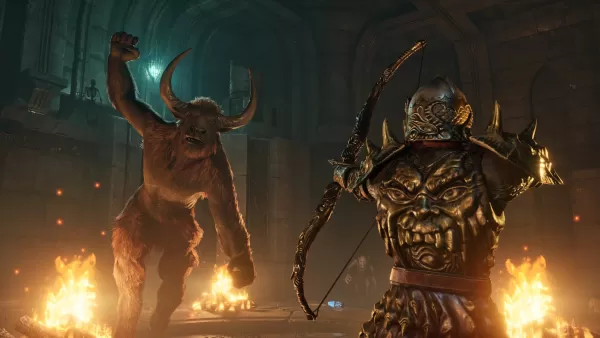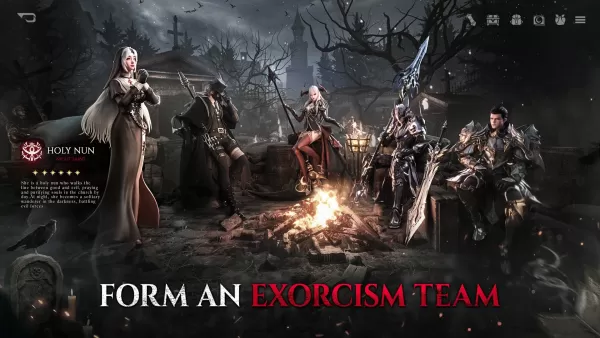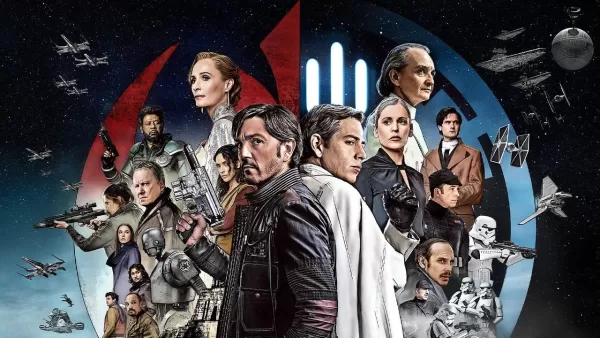When Bethesda unveiled Oblivion Remastered earlier this week, it was a sight to behold. The 2006 journey through Tamriel, once known for its quirky, potato-faced characters and blurry, low-resolution grasslands, has been transformed into the most visually stunning Elder Scrolls game to date. Having seen numerous HD overhauls in the past, my expectations for remasters were tempered—games like Mass Effect Legendary Edition and Dark Souls Remastered barely diverged from their Xbox 360 origins. Yet, the sight of the Imperial City, now rendered in Unreal Engine 5 with ray tracing, was nothing short of breathtaking. Not only does it boast visual enhancements, but it also features upgraded combat, RPG systems, and countless other refinements. Given these extensive changes, I initially questioned whether Bethesda and Virtuos had misnamed their project. Could this really be just a remaster, or is it more accurately a remake?
It turns out, I wasn't the only one with this thought. Fans and even Bruce Nesmith, the senior game designer on the original Oblivion, have suggested that "remaster" might not fully encapsulate the scope of the project. Yet, after diving into the game for several hours, it became clear that while Oblivion Remastered looks like a remake, it fundamentally plays like a remaster.
The reasons behind its remake-like appearance are straightforward: Virtuos has rebuilt "every single asset from scratch." From the trees to the swords to the crumbling castles, everything you see on screen is brand new. This overhaul not only meets modern graphical standards but exceeds them with beautiful textures, stunning lighting, and a new physics system that realistically affects the game world with every arrow and weapon strike. Despite the visual transformation, the NPCs remain the familiar faces from 2006, albeit with completely new models. This is a monumental effort that aims not to recreate a nostalgic memory, but to deliver a game that meets the high standards of 2025. If I had seen this before the remaster rumors, I might have mistaken it for *The Elder Scrolls 6*.The enhancements extend beyond visuals. Combat feels more responsive, with swordplay no longer reminiscent of dueling with a balloon. The third-person camera now includes a functional reticule, and every menu from the quest journal to the lockpicking and persuasion minigames has been given a fresh interface. The original leveling system, often criticized, has been replaced with a more intuitive hybrid of Oblivion and Skyrim's systems. Sprinting, a long-requested feature, has finally been added. With such comprehensive visual and gameplay improvements, it's tempting to label it a remake.
If I had seen Oblivion Remastered before the rumors, I might have mistaken it for The Elder Scrolls 6. The crux of the matter lies not in technology or scope, but in semantics. The gaming industry lacks clear definitions for "remake" and "remaster," leading to confusion. For instance, Rockstar's "Definitive Edition" remasters of the Grand Theft Auto trilogy retain the blocky look of PlayStation 2 games with updated textures and lighting. In contrast, the Crash Bandicoot N. Sane Trilogy, also called a remaster, features entirely new assets and looks like a modern game. The term "remake" is even more nebulous: Shadow of the Colossus and Demon's Souls by Bluepoint are rebuilt from the ground up but remain faithful to their originals, while Resident Evil 2 sticks to its original structure but redesigns gameplay. Final Fantasy 7 Remake and Rebirth take even greater liberties with design, script, and story. Despite being labeled remakes, these games share little in common.
Historically, a game rebuilt in a modern engine was considered a remake, while a remaster involved upgrades within the original technology. However, these definitions are becoming outdated. A more current definition might classify a remaster as a graphical overhaul that retains the original game's design with minor gameplay enhancements, while a remake involves a complete redesign. By this standard, Demon's Souls and Metal Gear Solid: Delta might be seen as remasters, reserving the term "remake" for games that offer a fresh take on old ideas.
 New lighting, fur, and metallic effects are just the beginning of the changes in Oblivion Remastered. Image credit: Bethesda / Virtuos
New lighting, fur, and metallic effects are just the beginning of the changes in Oblivion Remastered. Image credit: Bethesda / Virtuos
Given these definitions, Oblivion Remastered is aptly named. While its new assets and Unreal Engine 5 ray tracing make it look brand new, its core remains the same. As Bethesda stated, "We looked at every part and carefully upgraded it. But most of all, we never wanted to change the core. It’s still a game from a previous era and should feel like one."
The essence of that previous era is evident everywhere. It's in the loading screens behind every door, the perplexing persuasion minigame that remains baffling despite its interface upgrade, and the simplistic city designs that resemble stage sets. The NPCs still move awkwardly and converse with a lack of finesse, and combat, despite improvements, feels detached. The game retains its characteristic bugs and glitches, preserved to maintain the original's quirky charm.
Just months ago, Obsidian’s Avowed showcased a futuristic vision for elements of The Elder Scrolls. Its combat and exploration systems make Oblivion Remastered feel dated by comparison. Yet, Oblivion Remastered still offers much in 2025. Its magical world, filled with mysteries and oddities, retains its allure. The ambition behind its dynamic goblin wars and engaging quests still stands strong, offering a refreshing sense of player freedom compared to the more guided experiences of recent games. However, its dialogue lacks finesse, and its systems and level design feel dated. A true remake would have modernized these elements, but Oblivion Remastered is about reliving the past.
AnswerSee ResultsVideo games often borrow terminology from other media. In film, remakes are new productions with new casts, crews, scripts, and sets, while remasters enhance existing films to meet modern visual standards. Even with 4K restorations, classics like *Jaws* and *The Godfather* remain unmistakably products of their time. *Oblivion* is similar: it pushes visual quality to the limit, recreating its "exterior" in a new engine, but remains a product of the 2000s at its core. Alex Murphy, executive producer at Virtuos, likened it to "the Oblivion game engine as the brain and Unreal 5 as the body. The brain drives all the world logic and gameplay and the body brings to life the experience that players have loved for almost 20 years."Oblivion Remastered is precisely what its name suggests, and that should not diminish its accomplishments. Rather than debating whether it's a remake, we should use it as the benchmark for remasters from other major AAA companies. This is the level that Mass Effect Legendary Edition should have reached, and what Grand Theft Auto: The Trilogy should have aimed for, instead of feeling like a cash grab. Oblivion Remastered is a labor of love, looking like a remake crafted by passionate hands but playing like a remaster preserved by devoted fans. That's exactly how it should be.
















